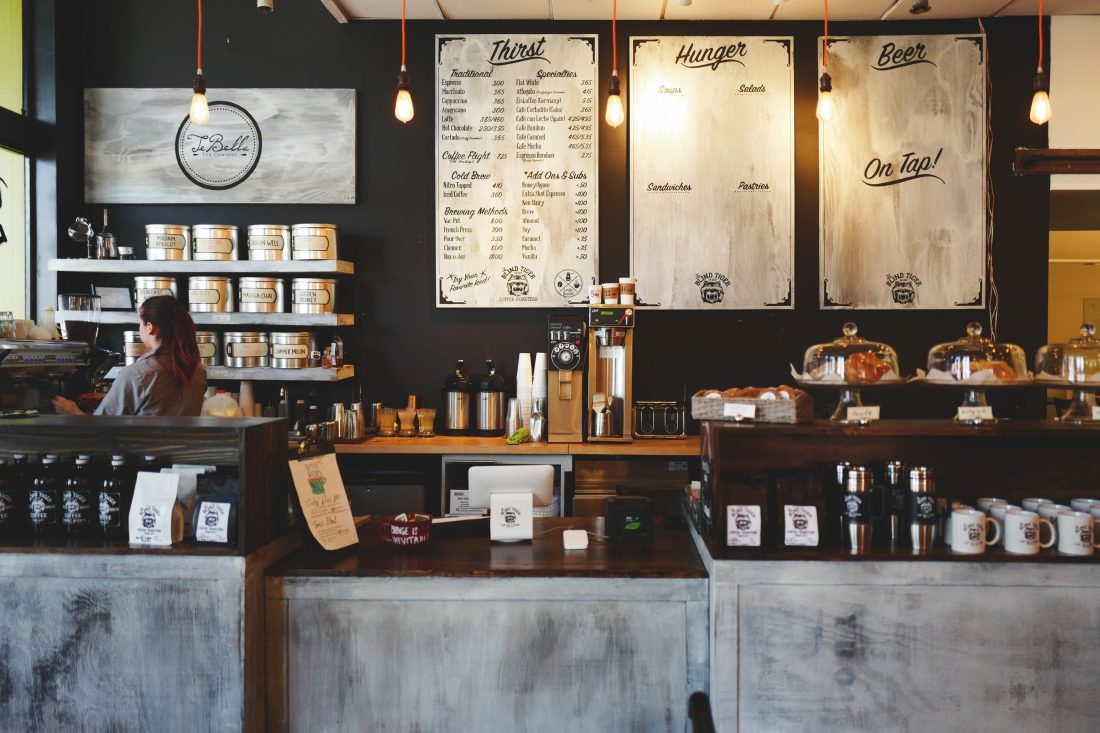

The Evolution of Coffee Shops in America
Coffee shops have become a staple of modern American culture. They’re a place where people can work, socialize, or simply relax while enjoying a cup of coffee. But how did coffee shops become so ubiquitous? The history of coffee shops in America is fascinating, marked by a shift from counterculture to mainstream. In this blog post, we’ll take a closer look at the evolution of coffee shops in America, from their early days as havens for artists and intellectuals to their current status as go-to spots for business meetings and casual hangouts.
We’ll explore the various trends and cultural shifts that have influenced the coffee shop scene over the years and examine the ways in which coffee shops have become an integral part of American society. So grab a cup of coffee and settle in for a journey through the history of coffee shops in America.
The origins of coffee houses in the counterculture movement
In the vibrant tapestry of American history, coffee houses have played a significant role in shaping cultural movements and societal shifts. The origins of coffee houses in the counterculture movement can be traced back to when young intellectuals, artists, and activists sought a space to gather, exchange ideas, and challenge societal norms.
During the 1950s and 1960s, coffee houses emerged as hubs of creativity and dissent, providing a sanctuary for individuals who questioned the status quo and sought to express themselves freely. These establishments became synonymous with the counterculture movement, offering poets, musicians, and political activists a haven to engage in spirited discussions and artistic expression.
As the counterculture movement gained momentum, coffee houses became more than places to grab a cup of coffee - they became symbols of rebellion and nonconformity. From Beat Generation luminaries like Allen Ginsberg and Jack Kerouac to civil rights activists and anti-war protesters, coffee houses served as meeting grounds for individuals united by a desire for social change and cultural revolution.
The evolution of coffee houses from counterculture enclaves to mainstream institutions is a testament to the enduring appeal of these spaces. Today, coffee shops serve as community gathering spots, where people from all walks of life can connect, converse, and savor the simple pleasure of a good cup of coffee.
The shift from counterculture to mainstream popularity
The journey of coffee shops in America from counterculture hubs to mainstream establishments is a fascinating evolution that mirrors society's changing tastes and trends. Once considered gathering spots for artists, intellectuals, and activists, coffee shops have become integral to everyday life for millions of Americans.
In the past, coffee shops were synonymous with bohemian culture, where discussions on politics, art, and philosophy thrived in an atmosphere of creativity and dissent. These establishments were seen as symbols of nonconformity and rebellion against the mainstream.
However, as the years passed, the allure of coffee culture transcended its countercultural roots and found widespread acceptance among the general public. The rise of specialty coffee, emphasizing quality, craft, and unique flavors, played a significant role in this shift.
Today, coffee shops are not just places to grab a quick caffeine fix; they are social hubs where people meet, work, relax, and connect. The cozy ambiance, artisanal coffee creations, and welcoming environment have made coffee shops a mainstream destination for individuals of all ages and backgrounds.
The shift from counterculture to mainstream popularity reflects the evolving dynamics of American society and the enduring appeal of coffee as a unifying force that brings people together. This transformation underscores the remarkable journey of coffee shops in America and their enduring relevance in shaping contemporary social interactions.
The role of Starbucks in the mainstreaming of coffee shops
We must give credit where it is due. Starbucks, the iconic coffeehouse chain, has played an absolutely pivotal role in mainstreaming coffee culture in America. Founded in 1971 in Seattle, Washington, by three partners inspired by the vibrant coffee culture in Italy, Starbucks has grown into a global phenomenon with thousands of locations worldwide.
One of Starbucks' key contributions to the mainstreaming of coffee shops is its focus on creating a welcoming and comfortable environment for customers to enjoy their coffee. The introduction of cozy seating areas, free Wi-Fi, and a wide range of beverages and food options has transformed the coffee shop experience from a quick caffeine fix to a destination for socializing, working, or simply relaxing.
Moreover, Starbucks' innovative marketing strategies, such as seasonal promotions, loyalty programs, and tie-ins with popular culture, have helped to popularize coffee consumption among a wider audience. The ubiquitous presence of Starbucks locations in malls, airports, and even grocery stores has made it easy for customers to access their favorite coffee beverages wherever they go.
In addition to its commercial success, Starbucks has also been a pioneer in promoting ethical sourcing practices and sustainability in the coffee industry. By introducing Fair Trade and organic options, supporting coffee farmers through initiatives like the Coffee and Farmer Equity (C.A.F.E.) Practices program and committing to reducing its environmental impact, Starbucks has set a standard for corporate responsibility in the coffee business.
Overall, Starbucks has revolutionized the way Americans consume coffee and shaped the cultural landscape of coffee shops, paving the way for the proliferation of specialty coffee chains and independent cafes across the country. Its influence on mainstreaming coffee culture is undeniable, making it a central figure in the fascinating evolution of coffee shops in America.
The impact of specialty coffee shops on the industry
Specialty coffee shops have undeniably left a lasting impact on the coffee industry. These establishments have transformed how people perceive and consume coffee, elevating it from a mere beverage to a sensory experience. By prioritizing quality, craftsmanship, and a deep appreciation for coffee-making, specialty coffee shops have set a new standard for excellence within the industry.
One of the key contributions of specialty coffee shops has been the emphasis on ethically sourced beans and transparent supply chains. Consumers today are more conscious about where their coffee comes from, and specialty coffee shops have been at the forefront of promoting sustainability and fair trade practices. This focus on ethical sourcing has not only raised awareness about the importance of supporting coffee farmers. Still, it has also shifted consumer preferences towards higher quality, responsibly sourced coffee.
Moreover, specialty coffee shops have played a significant role in educating consumers about the intricacies of coffee, from bean to brew. By showcasing different brewing methods, highlighting flavor profiles, and offering unique coffee varieties, these shops have helped cultivate a more discerning coffee culture. As a result, consumers have become more adventurous in their coffee choices, seeking new and distinctive flavors that go beyond the standard cup of joe.
Overall, the impact of specialty coffee shops on the industry is undeniable. They have redefined the coffee experience, inspired a newfound appreciation for coffee-making craft, and set a higher bar for quality and sustainability. As coffee continues to evolve and adapt to changing consumer preferences, specialty coffee shops will undoubtedly remain influential drivers of innovation and excellence in the coffee industry.
The evolution of coffee shop design and ambiance
Coffee shops have undergone a remarkable transformation in design and ambiance from their countercultural roots to becoming mainstream staples in American society. In the early days, coffee shops were often cozy, bohemian spaces adorned with mismatched furniture, vintage décor, and eclectic art pieces. These establishments served as gathering spots for artists, writers, and intellectuals, fostering a sense of community and creativity.
As the coffee culture gained popularity and entered the mainstream, the design and ambiance of coffee shops evolved to cater to a wider audience. Today, modern coffee shops feature sleek and minimalist interiors, trendy décor, and Instagram-worthy aesthetics. The focus has shifted towards creating a comfortable and inviting atmosphere that appeals to a diverse clientele, from students and professionals to families and tourists.
The influence of social media on the coffee shop experience
In today's digital age, the influence of social media on the coffee shop experience cannot be overlooked. Platforms like Instagram, Facebook, and Twitter have transformed coffee shops' perception and promotion. With visually appealing latte art, cozy interiors, and trendy decor, coffee shops have become prime locations for social media users to capture and share aesthetically pleasing photos.
The rise of influencers and bloggers showcasing their favorite coffee spots has created a ripple effect, with many customers seeking out these photogenic locations to replicate the experience for themselves. The power of a well-curated Instagram feed has the potential to attract new customers and drive foot traffic to coffee shops.
Moreover, social media has become a powerful marketing tool for coffee shop owners to engage with their customers, share updates on menu offerings, and promote special events. By creating a strong online presence, coffee shops can cultivate community and loyalty among their customers, encouraging them to return for their favorite brews and ambiance.
Overall, social media has significantly shaped the modern coffee shop experience, blurring the lines between physical spaces and digital interactions. As coffee culture continues to evolve, embracing social media as a tool for connection and promotion will be essential for coffee shop owners looking to thrive in the competitive market.
The importance of sustainability and ethical sourcing in modern coffee shops
In today's modern coffee culture, sustainability, and ethical sourcing have become paramount considerations for coffee shops. As consumers become more conscious of their purchasing decisions' environmental and social impact, coffee shops increasingly focus on sourcing their beans from ethical suppliers and supporting sustainable practices.
By prioritizing sustainability, coffee shops can positively impact the environment and support fair labor practices in the coffee industry. This commitment to ethical sourcing resonates with socially conscious consumers and helps differentiate coffee shops in a competitive market.
Moreover, embracing sustainability can also lead to cost savings for coffee shops in the long run. Coffee shops can lower operational expenses and create a more efficient business model by reducing waste, conserving resources, and supporting eco-friendly practices.
Overall, the emphasis on sustainability and ethical sourcing in modern coffee shops reflects a broader shift towards more responsible and mindful consumption. As coffee shops evolve and adapt to changing consumer preferences, integrating sustainability into their business practices will be essential for success in the ever-evolving coffee industry.
The future of coffee culture in America
As we look ahead to the future of coffee culture in America, it's clear that the evolution of coffee shops will continue to be shaped by changing consumer preferences, technological advancements, and societal trends. With the rise of specialty coffee and the emphasis on sustainability and ethical sourcing, we can expect to see an increased focus on quality, transparency, and community engagement within the coffee industry.
One exciting trend that is likely to gain momentum is technology integration in coffee shops. From mobile ordering and contactless payments to personalized recommendations based on customer preferences, technology will significantly enhance the coffee shop experience. This shift towards a more tech-savvy approach will streamline operations and cater to the growing demand for convenience and efficiency among consumers.
Moreover, experiential coffee shops are set to become more prevalent in the future. Coffee shops will not just be a place to grab a quick cup of coffee but will evolve into immersive spaces where customers can engage with the coffee-making process, attend workshops and tastings, and interact with like-minded coffee enthusiasts. This experiential approach will create a sense of community and belonging, fostering deeper connections between coffee shops and patrons.
The future of coffee culture in America looks bright, with coffee shops continuing to serve as hubs of creativity, conversation, and community. By embracing innovation, sustainability, and inclusivity, coffee shops are poised to remain at the forefront of American culture, catering to coffee lovers' evolving tastes and preferences nationwide.



